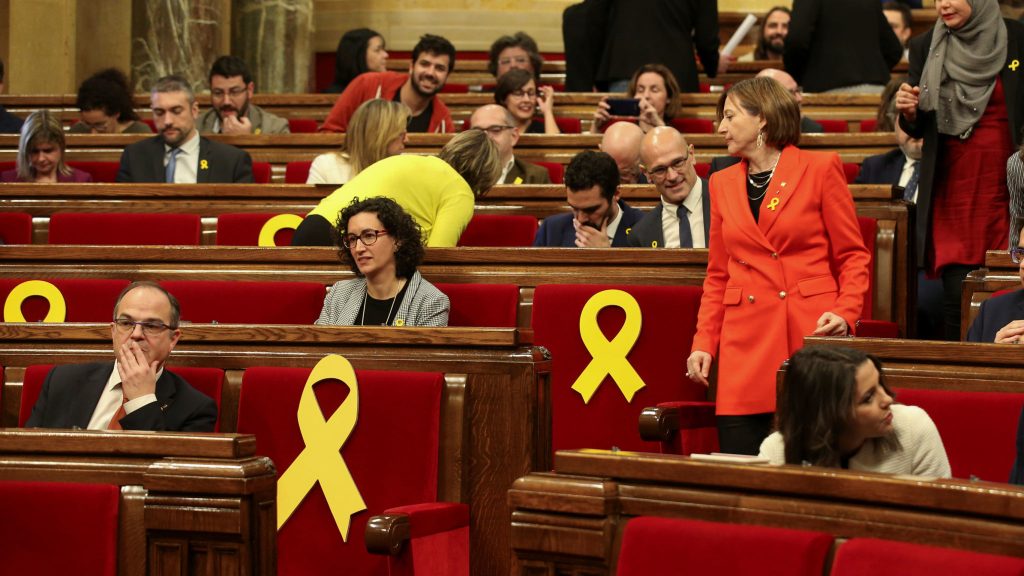Catalonia’s parliament has met for the first time since the region’s failed bid for independence from Spain.
The legislature was dissolved following the unsuccessful secession effort, with Madrid calling fresh elections in a bid by Prime Minister Mariano Rajoy to defuse Spain’s worst constitutional crisis in decades.
But pro-independence parties are now in the majority and the session has seen separatists start the process of getting sacked regional leader Carles Puigdemont back into power.
With 70 out of 135 deputies, they in theory have the votes necessary to nominate a separatist president, with Mr Puigdemont their favoured candidate.
A first vote to choose a new leader is likely to take place at the end of this month.
Mr Puigdemont and his cabinet were sacked by Madrid after the regional parliament declared unilateral independence following an independence referendum seen as illegal by the Spanish government.
The separatists have managed to elect a pro-independence deputy as parliamentary speaker, a boost in their bid to allow Mr Puigdemont and others to govern remotely.
Mr Puigdemont is currently in self-imposed exile in Belgium and risks being arrested on charges of rebellion, sedition and misuse of public funds if he returns.
Three Catalan politicians are being held in prison on the same charges as Mr Puigdemont, while five others are abroad, meaning the separatists’ majority is not assured.
Spain’s government has warned Catalonia that it will maintain direct control over the region if Mr Puigdemont attempts to govern from Belgium.
In theory, Mr Puigdemont has to be in the chamber to be elected, although he wants to appear by videolink or write a speech and have it read by someone else.
The parliament’s rules state that the candidate for the regional presidency must “present his or her government programme to parliament.”
It does not explicitly say whether this must be done in person, but the Catalan parliament’s own legal experts, the opposition and the central government maintain it cannot be done remotely.
A parliamentary committee which will make the final decision is due to be formed later on Wednesday.
Direct rule has proved hugely unpopular in Catalonia, which enjoyed considerable autonomy before the secession crisis.
According to economy minister Luis de Guindos, the crisis has hit economic growth, with an estimated cost of €1bn (£886m).
More than 3,000 companies have moved their headquarters out of the region amid the uncertainty.



